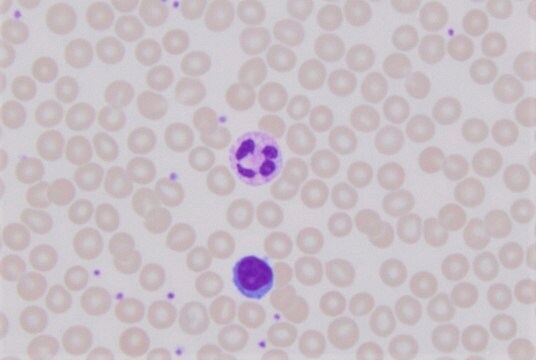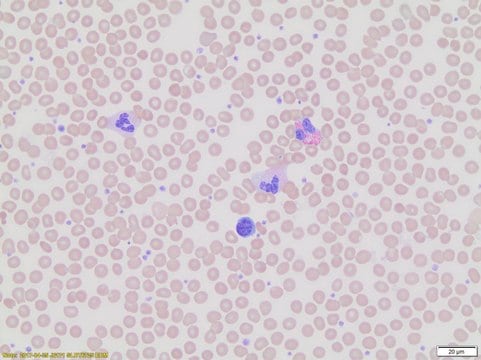32884
Giemsa Stain, Modified Solution
according to Giemsa
Synonym(s):
Azure eosin methylene blue, Giemsa solution
About This Item
Recommended Products
form
liquid
Quality Level
quality
according to Giemsa
technique(s)
UV/Vis spectroscopy: suitable
color
dark blue
pH
6.9
density
1.036 g/cm3 at 20 °C
suitability
passes test for UV spectrum
application(s)
diagnostic assay manufacturing
hematology
histology
storage temp.
room temp
SMILES string
[Cl-].CN(C)c1ccc2N=C3C=CC(=[NH2+])C=C3Sc2c1
InChI
1S/C14H13N3S.ClH/c1-17(2)10-4-6-12-14(8-10)18-13-7-9(15)3-5-11(13)16-12;/h3-8,15H,1-2H3;1H
InChI key
NALREUIWICQLPS-UHFFFAOYSA-N
Looking for similar products? Visit Product Comparison Guide
General description
Application
Other Notes
Principle
Signal Word
Danger
Hazard Statements
Precautionary Statements
Hazard Classifications
Acute Tox. 3 Dermal - Acute Tox. 3 Inhalation - Acute Tox. 3 Oral - Flam. Liq. 2 - STOT SE 1
Target Organs
Eyes,Central nervous system
Storage Class Code
3 - Flammable liquids
WGK
WGK 2
Flash Point(F)
51.8 °F - closed cup
Flash Point(C)
11 °C - closed cup
Regulatory Listings
Regulatory Listings are mainly provided for chemical products. Only limited information can be provided here for non-chemical products. No entry means none of the components are listed. It is the user’s obligation to ensure the safe and legal use of the product.
EU REACH Annex XVII (Restriction List)
Choose from one of the most recent versions:
Already Own This Product?
Find documentation for the products that you have recently purchased in the Document Library.
Customers Also Viewed
Our team of scientists has experience in all areas of research including Life Science, Material Science, Chemical Synthesis, Chromatography, Analytical and many others.
Contact Technical Service








